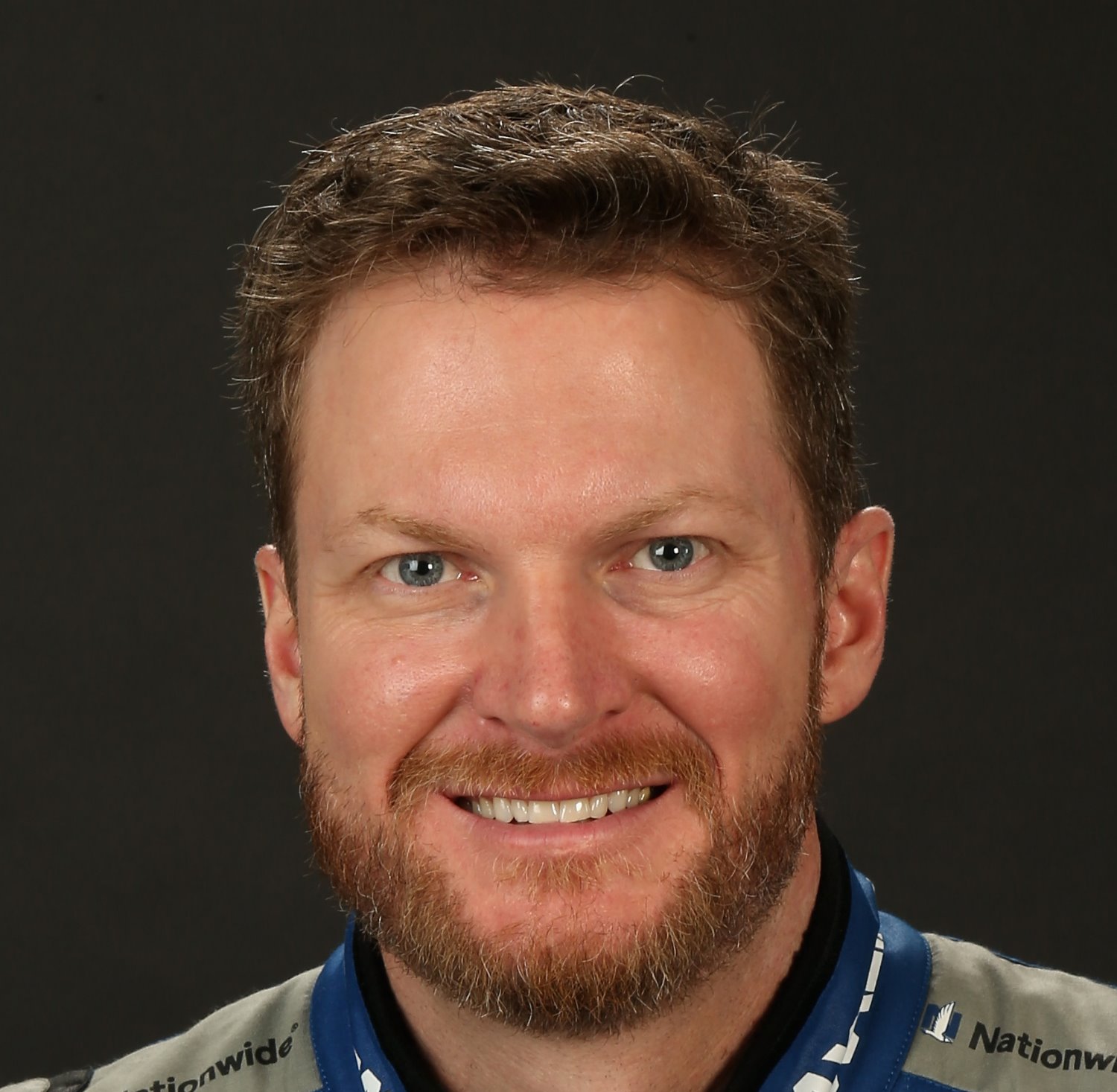Dale Earnhardt Jr. will donate his brain for concussion research (Update)
AS FAR AS THE TWEET ABOUT DONATING YOUR BRAIN TO SCIENCE, IS THAT SOMETHING YOU KNEW YOU WERE GOING TO DO? OR IS THAT SOMETHING NEW? WHAT WOULD YOU HOPE PEOPLE WOULD LEARN FROM YOUR BRAIN?
Earnhardt, Jr. "Hopefully, they don't have to look at my brain whenever I pass away they have learned enough science to study the brains of living adults. Hopefully, the science has advanced enough to where they no longer need to be poking around inside my brain.
"I was inspired really by Brandi Chastain (professional soccer player) and the Raiders guys that donated their brains in honor of their teammate. I went through my experience in 2012 and met some amazing doctors at the University of Pittsburgh Medical Center; Mickey Collins was one of those guys. They gave me the confidence going through that process that I could be successful and get through it. I have. I have been healthy and successful and I learned a ton. I may be even a better race car driver today and I'm definitely getting the results on the track that I've always wanted.
"I will be donating or pledging my brain is what they like to say to the Concussion Legacy Foundation. They are in partnership with Boston University where the brain bank is. I was a donor already for many years, as my driver's license would attest. It seemed like a reasonable thing to do for me. Anything that I can do to help others, but hopefully the science has advanced far beyond where it is today and they don't need it. It was something that I didn't have to ask myself whether I wanted to do it or not. Going through that process in 2012 I learned so much and have so much respect for the work that those doctors are doing and really were inspired by some of the athletes that have pledged their brains before me."
WAS YOUR TWEET THE OTHER NIGHT A SPUR OF THE MOMENT THING?
Earnhardt, Jr. "I saw a story, we obviously had the week off, and I was just sitting around reading Twitter and saw that story about the Raiders donating their brains. I just thought that was amazing that those guys did that in honor of their teammate. I read where Brandi (Chastain) had done that maybe a month ago. That just was really inspiring and I saw someone mention, I don't even know what the context of the Tweet I was responding to was.
"I probably should have, Mike Davis (JR Motorsports Public Relations) would prefer me to have done that in a more put together fashion where we could have put together a release or whatever. I just was in the moment of conversation and that is sometimes the comfort that you find yourself in on Twitter sometimes and I didn't expect it to turn into the story it did, but by all means if it raises more awareness and inspires people to donate their brains and pledge their brains. They don't need just athletes. They need everybody. I'm going to give up all the organs that are worth anything when it's over with. They can have it all."
"I got in touch with the Concussion Legacy Foundation and they help me understand exactly what the process is and it's very straight forward. You get a card, basically like you would carry around a driver's license where it says you are a donor on the license. There will be a card in your pocket that you carry like your driver's license. Your family can refuse. Nothing is binding so it's really just a promise in a way." Chevy Racing PR
 |
| Dale Earnhardt Jr. |
03/28/16
Dale Earnhardt Jr. said on social media Saturday that he will donate his brain for concussion research after his death. NASCAR’s most popular driver made the pronouncement on Twitter in an almost matter of fact manner, tweeting, "I'm donating everything one way or another."
Several NFL players and extreme sports athletes have already made the commitment. The research centers on chronic traumatic encephalopathy (CTE) – a degenerative brain disease associated with head injuries. Evidence is mounting that repeated head injuries and concussions many pro athletes suffer can lead to (CTE). The debilitating disease is marked by depression, dementia, and other Alzheimer's-like symptoms. The disease can only be diagnosed after death. Those who have been diagnosed are NFL stars Frank Gifford and Ken Stabler, who were diagnosed with CTE after their deaths.
The 41-year-old Earnhardt has been involved in several hard crashes during his career. He has been diagnosed with at least three concussions during his racing career. He suffered a concussion at the Fontana race in April of 2002 but didn’t reveal the injury until September of that same year as he continued to race. In 2012 Earnhardt suffered two more concussions in the span of six weeks. He self-diagnosed after a hard crash during a tire test at Kansas Speedway, then after another big crash at Talladega Superspeedway. After that crash, Earnhardt went to a doctor for an evaluation and was forced to sit out two races in October because of the injury.
Earnhardt has shown no ill-effects of the concussions thanks in large part perhaps to NASCAR's improved safety. Hall of Fame driver Fred Lorenzen was found to have dementia in 2009 along with short-term memory loss. His family has met with NASCAR officials to discuss his declining health.
Last year, J.D. Gibbs, president of Joe Gibbs Racing and son of the Hall of Fame football coach, began treatment for symptoms affecting his speech and brain function that could have stemmed from playing football and participating in racing and extreme sports. The Examiner
